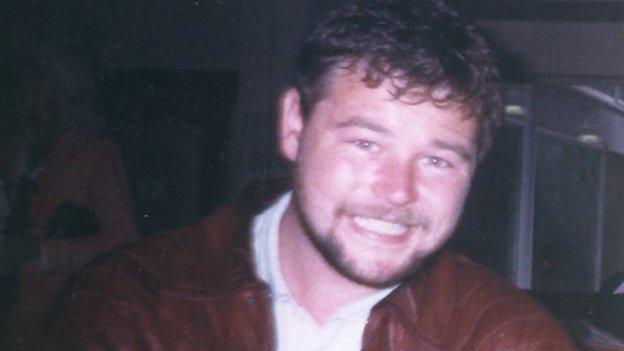Hillsborough inquests: Delay over body identification despite ID card
- Published
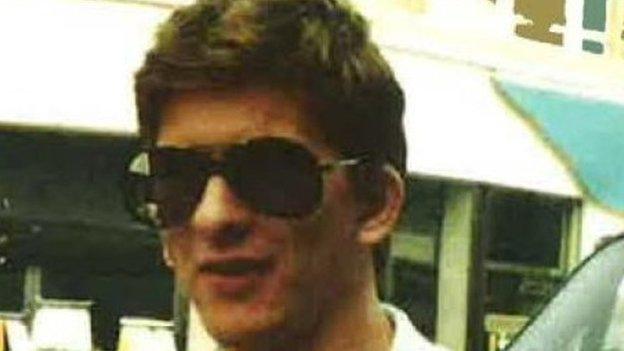
A fan covered Roy Pemberton's face with a jacket "out of dignity", the jury heard
A father was unable to identify his son's body until midnight despite him carrying a medical identity card, the Hillsborough inquests heard.
William Roy Pemberton, known as Roy, was fatally crushed during the FA Cup semi-final on 15 April in 1989.
A police officer searched him and found his identity card before 16:00 BST.
His father identified him eight hours later but only after he was incorrectly told his son was not pictured in Polaroid photographs of the victims.
Ninety-six fans died in the crush.
A football fan who covered Mr Pemberton's face with a jacket on the pitch said he did so instinctively "out of dignity", but did not check him for signs of life.
A jury heard the 23-year-old and his father left their home at 09:30 BST and caught a coach from Liverpool to Sheffield.
'Unable to assist'
William Pemberton Sr had bought his son a ticket for the standing terraces at the ground but did not have a ticket himself.
The jury heard how Mr Pemberton Sr stayed on the coach during the match but got off to look for his son after fans started returning.
The Leicester University student had been standing in pen four at the Leppings Lane end of the stadium.
In footage timed at 15:27 BST he was seen lying on the pitch in front of the terraces.
On a video played in court, Liverpool fan Aidan Bradley stepped briefly into shot and laid a black jacket over his face.
Mr Bradley said in a statement that he thought Mr Pemberton was dead, his eyes were open but that he did not check him for any "signs of life".
He added that he put the jacket over his face "as an instinctive, spur of the moment thing out of dignity".

Who were the 96 victims?
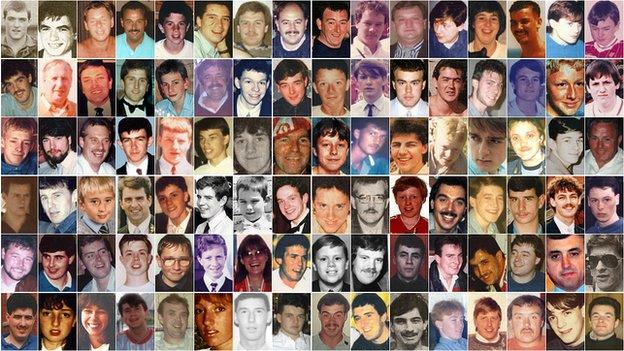
BBC News: Profiles of all those who died

Mr Pemberton was lifted onto an advertising hoarding and carried towards the stadium's gymnasium by police and fans.
Carl Wilkinson, a PC, said he found him laid on the ground just outside the gym.
He and other officers carried him inside.
Mr Wilkinson searched Mr Pemberton, who had both epilepsy and diabetes, and found a "medical ID card which had Roy's name on it".
The officer passed the details onto colleagues.
At about 16:00 BST a doctor assessed Mr Pemberton's body and confirmed that he had died.
Polaroid identification
Matthew Hill, a barrister representing the coroner, read a summary of Mr Pemberton Sr's evidence.
Mr Hill said that after leaving the coach, Mr Pemberton Sr "made enquiries of a number of police officers on the way to the stadium, who were unable to assist".
He gave descriptions of his son to officers at the stadium. He was told to go to a police station in Hammerton Road.
After giving a description he was asked to wait in a Boys' Club nearby.
Eventually he was asked to go into the stadium's gymnasium where officers showed him Polaroid photographs of those who had died. Mr Pemberton Sr said he thought two of them showed his son.
Mr Hill said: "One of the photographs was, in fact, Roy. However, Mr Pemberton [Sr] was told that neither of the people shown in the two photographs was his son".
The barrister continued: "Some time later an officer came and asked if he was, and I quote, Pemberton.
"As we have heard, Roy had been carrying identification that day. When Mr Pemberton [Sr] confirmed the family name, he was informed that Roy had been found.
"Shortly after, and some time after midnight, Mr Pemberton [Sr] and his son-in-law formally identified Roy."
The inquests continue.
- Published7 April 2014
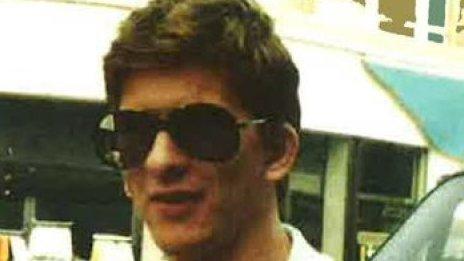
- Published6 July 2015
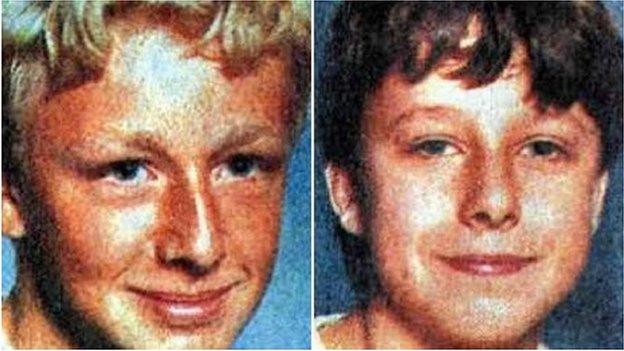
- Published2 July 2015
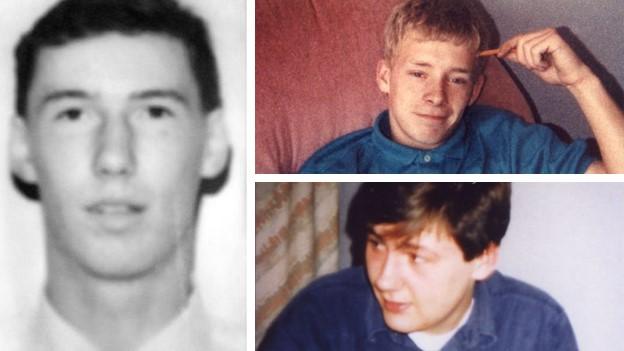
- Published29 June 2015
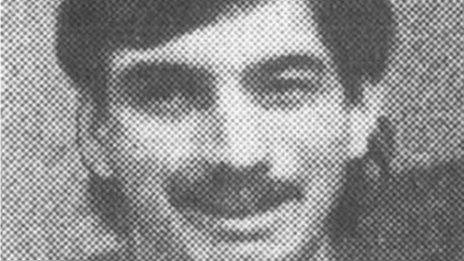
- Published24 June 2015
